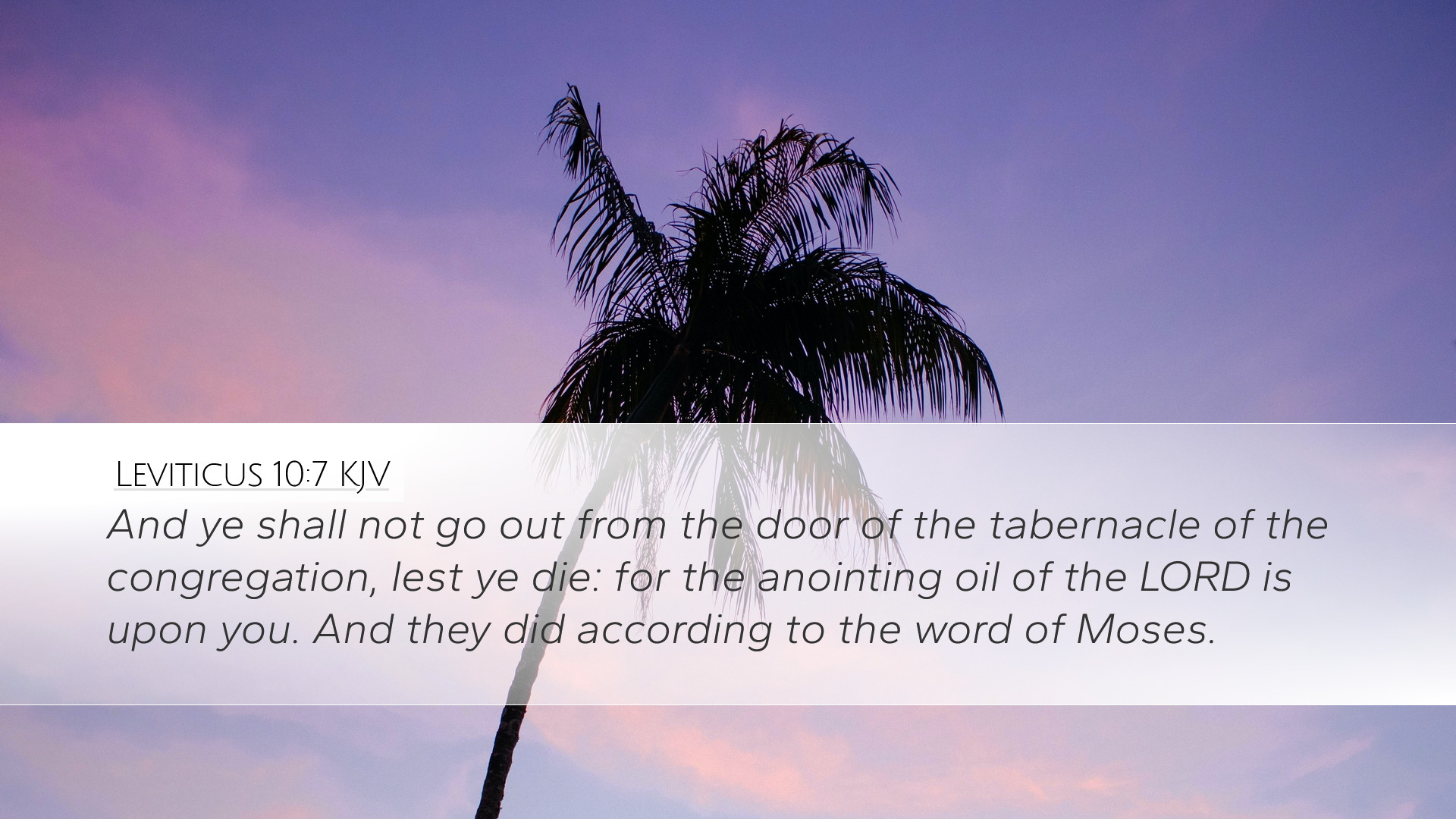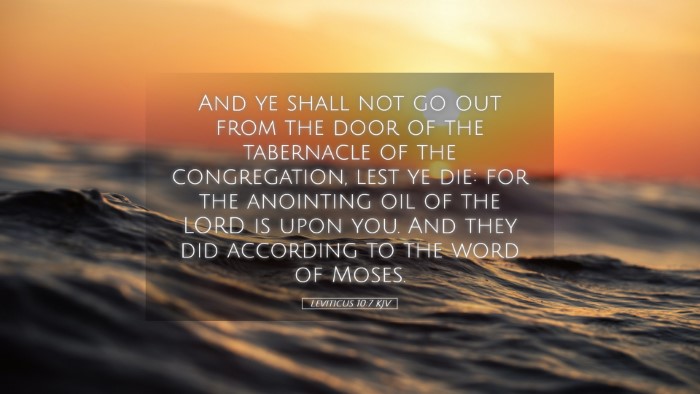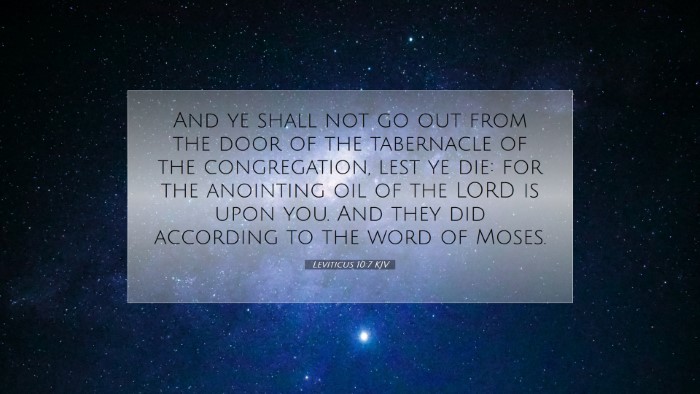Commentary on Leviticus 10:7
Verse: "And ye shall not go out from the door of the tabernacle of the congregation, lest ye die: for the anointing oil of the LORD is upon you. And they did according to the word of Moses."
Introduction
Leviticus 10:7 presents a profound instruction given to Aaron and his sons regarding their responsibilities as priests. This verse occurs in the aftermath of the tragic death of Nadab and Abihu, who offered unauthorized fire before the Lord. Their fate served as a divine warning of the seriousness of approaching God incorrectly. The commentary from renowned scholars like Matthew Henry, Albert Barnes, and Adam Clarke sheds light on the deeper theological implications and practical applications derived from this verse.
Contextual Framework
Historical Context: The events chronicled in Leviticus occur shortly after the establishment of the priestly order and the formal regulations of worship. Moses had just received detailed instructions on the priestly duties and the sanctity of the offerings.
Theological Context: The significance of holiness in worship is a recurring theme in Leviticus. Chapter 10 serves as a pivotal moment where God underscores the dangers of irreverence in worship.
Theological Insights
-
The Sanctity of the Priesthood: Both Matthew Henry and Adam Clarke emphasize the necessity of priests maintaining a state of holiness. The warning to not leave the tabernacle reflects the seriousness of their role as mediators between God and the people. Henry states, "The priests had a duty to embody holiness, representing the divine presence."
Application: The call to holiness is echoed in New Testament scriptures (e.g., 1 Peter 2:9), reminding contemporary believers of their royal priesthood and the need for consecration in their spiritual lives.
-
The Consequences of Disobedience: Albert Barnes articulates that the immediate consequence of Nadab and Abihu's disobedience serves as a solemn reminder. Their departure from the prescribed manner of worship led to their demise, illustrating the grave consequences that can arise from disregarding divine commandments.
Application: This sets a precedent for the necessity of adhering to God’s instructions in both worship and daily living, prompting theological discussions on divine judgment versus grace.
-
The Role of the Anointing: The mention of anointing oil signifies a divine empowerment for the work of the priests. Clarke notes that the anointing oil represents the Holy Spirit's presence, equipping them for their sacred tasks.
Application: The empowerment of the Holy Spirit is critical for effective ministry today. Ministers are encouraged to seek God’s anointing rather than relying solely on human capabilities.
Practical Applications for Ministry
-
Reverence in Worship: Pastors and church leaders are reminded of the importance of approaching God with reverence. Disregarding this principle not only affects personal spirituality but can also lead congregations astray.
-
Understanding God's Presence: The tabernacle was not merely a physical location but the dwelling place of God’s glory. Leaders should foster an awareness of God’s presence among their congregation.
-
The Weight of Responsibility: The priestly role carries heavy responsibilities. Leaders should be well-versed in Scripture and grounded in prayer, carrying out their duties with humility and seriousness.
-
Encouraging Holiness among Believers: Churches should instill a culture that values holiness, distinctly separating themselves from prevailing secular norms. This mirrors the call for Israel to be a holy nation.
-
Ongoing Need for Anointing: Emphasizing the necessity of the Holy Spirit in all facets of ministry operations is crucial. Programs and services should prioritize spaces for spiritual renewal and fresh anointing.
Conclusion
Leviticus 10:7 serves as a timeless reminder that the pursuit of holiness is paramount for all believers, particularly those in leadership roles. The united insights from Matthew Henry, Albert Barnes, and Adam Clarke bring forth a multi-faceted understanding of this verse, illuminating the path toward reverent worship and faithful service. As pastors, theologians, and students of the Word reflect on these teachings, may they draw closer to the holiness of God and embody the reverence required in His presence.


